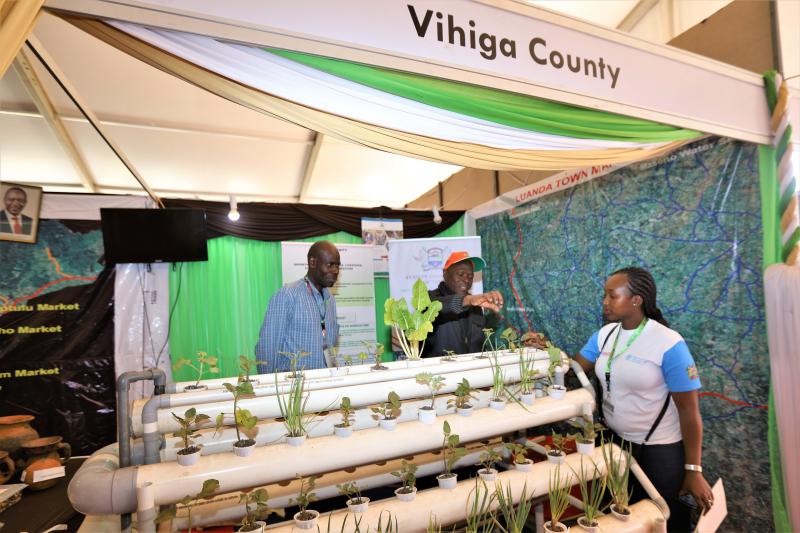×
The Standard e-Paper
Smart Minds Choose Us

Vihiga County exhibition stall at the Sixth Devolution Conference at Kirinyaga University grounds, March 7, 2019. [Mose Sammy, Standard]
Improved rural road network, opening up of healthcare facilities and the never-ending fight over delay in disbursement of funds are some of the hits and misses of devolution.